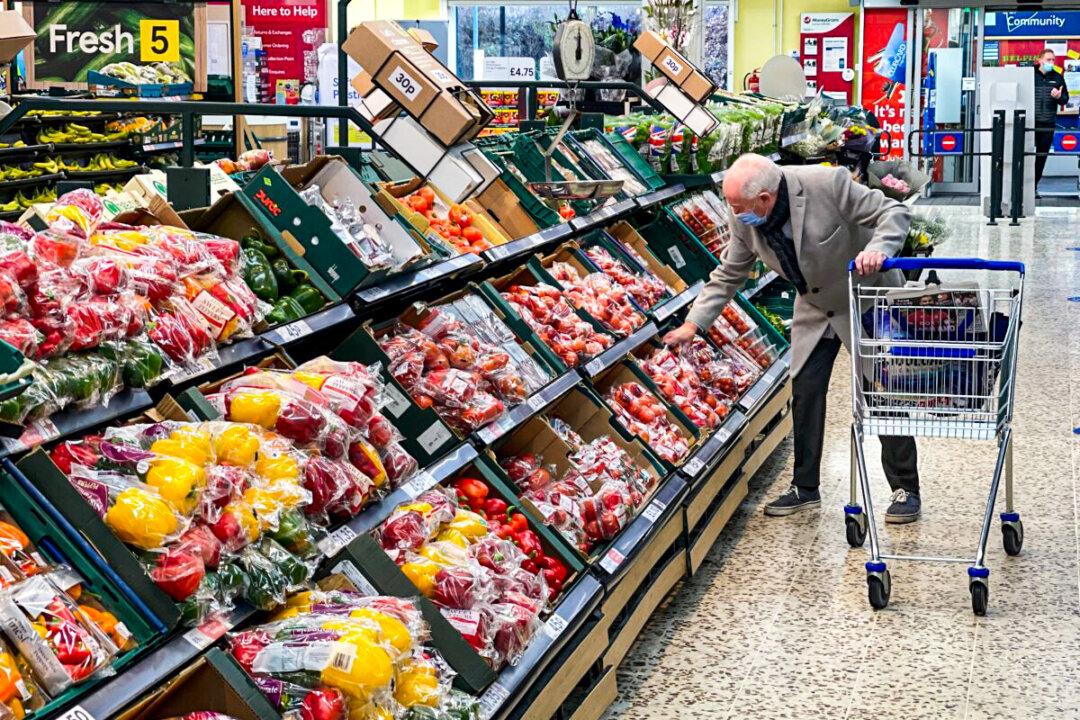British consumers are delaying their Christmas shopping as grocery price inflation in the UK hits a new record, according to new research.
According to the latest data from research firm Kantar, four-week grocery price inflation has reached 14.7 percent, the highest since the firm began to record the data in 2008.





